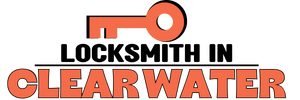CCTV (closed-circuit television) systems are becoming an essential part of contemporary security protocols. These systems provide a dependable means of keeping an eye on and protecting properties, whether they are being used for business or domestic purposes. In order to guarantee the efficient operation and best possible performance of your CCTV setup, consider the following advice.
Address All Observations: Choose cameras with wide-angle lenses or pan-and-tilt features to cover extensive spaces. This reduces the camera quantity while maintaining comprehensive surveillance.
All-Weather Resilience: For outdoor camera installation, select weather-resistant models that can withstand various weather conditions. This resilience ensures uninterrupted surveillance, no matter the surroundings.
Optimum Camera Positioning: Achieving optimum footage quality relies on strategic camera positioning. Identify critical areas to monitor, such as entry points, high-traffic zones, and vulnerable spots. Make sure cameras are placed at appropriate heights and angles to reduce blind spots.
Adequate Lighting: Sufficient lighting is vital for obtaining clear visuals, especially during low-light conditions. Consider placing cameras near current light sources or utilizing cameras with infrared (IR) sensors for improved night vision.
Optimal Camera Selection: Select cameras optimized for optimal performance through high resolution, ensuring superior image clarity and finer details. These cameras also excel in low-light situations, guaranteeing consistent surveillance efficacy.
Mobile Surveillance: Choose a CCTV arrangement that provides remote access using a smartphone app or web browser. This capability enables you to keep an eye on your property in real-time from any distance, heightening convenience and security.
Routine Care: Regularly engage in maintenance assessments for your CCTV system, verifying cleanliness, accurate alignment, and proper camera operation. Dust or debris accumulation on the lens can lead to compromised image quality.
Sufficient Storage: Confirm that your closed-circuit television system has adequate storage to capture and save footage. Consider using online storage, or go with an on-site DVR or network video recorder (NVR), depending on your needs.
Secured Network Connectivity: If your CCTV system is linked to the internet, safeguard it with secure passwords and activate encryption. Continuously update firmware to prevent vulnerabilities.
Privacy Compliance: Comply with privacy laws and regulations when placing cameras, especially in areas that could encroach upon others’ privacy.
Motion Detection: Employ motion detection preferences to start recording and alerts when motion is detected. This saves storage room and directs your notice to potentially significant incidents.
Backup Power Solution: Contemplate providing backup power to your CCTV system, such as uninterruptible power supply (UPS) units. This ensures surveillance continuity during power disturbances.
Routine Assessment: Undertake routine assessments of your CCTV system to ensure the functioning of all cameras and the proper recording and storage of footage.
Expert Installation: While DIY alternatives are present, professional installation guarantees accurate camera placement, wiring, and configuration to achieve optimal performance.
Unified Integration Approach: Fuse your CCTV system with additional security measures, such as alarms or access control systems, to build a cohesive security solution.
Privacy Configuration: When your cameras track spaces with a mixture of public and private areas, implement privacy settings to veil private areas from being seen.
Frequent Upgrades: Make sure your CCTV system is up to date by installing the most recent manufacturer-provided firmware and software updates.
Proficient Usage Training: For a CCTV system accessed by multiple users, offer training to ensure proficient and effective usage.
Adherence to Laws: Make sure you are informed about local legal provisions and rules concerning the operation of CCTV systems, especially in public venues.
Video Inspection: Conduct regular assessments of recorded footage to spot any uncommon or suspicious activities. This step supports security protocols.
By enacting these recommendations, you can establish that your CCTV system remains a robust and effective tool for enhancing security, whether it pertains to your residence, office, or other property. Bear in mind that technology is constantly progressing, so staying updated about the latest advancements in CCTV systems can offer an extra layer of enhancement to your security protocols.
